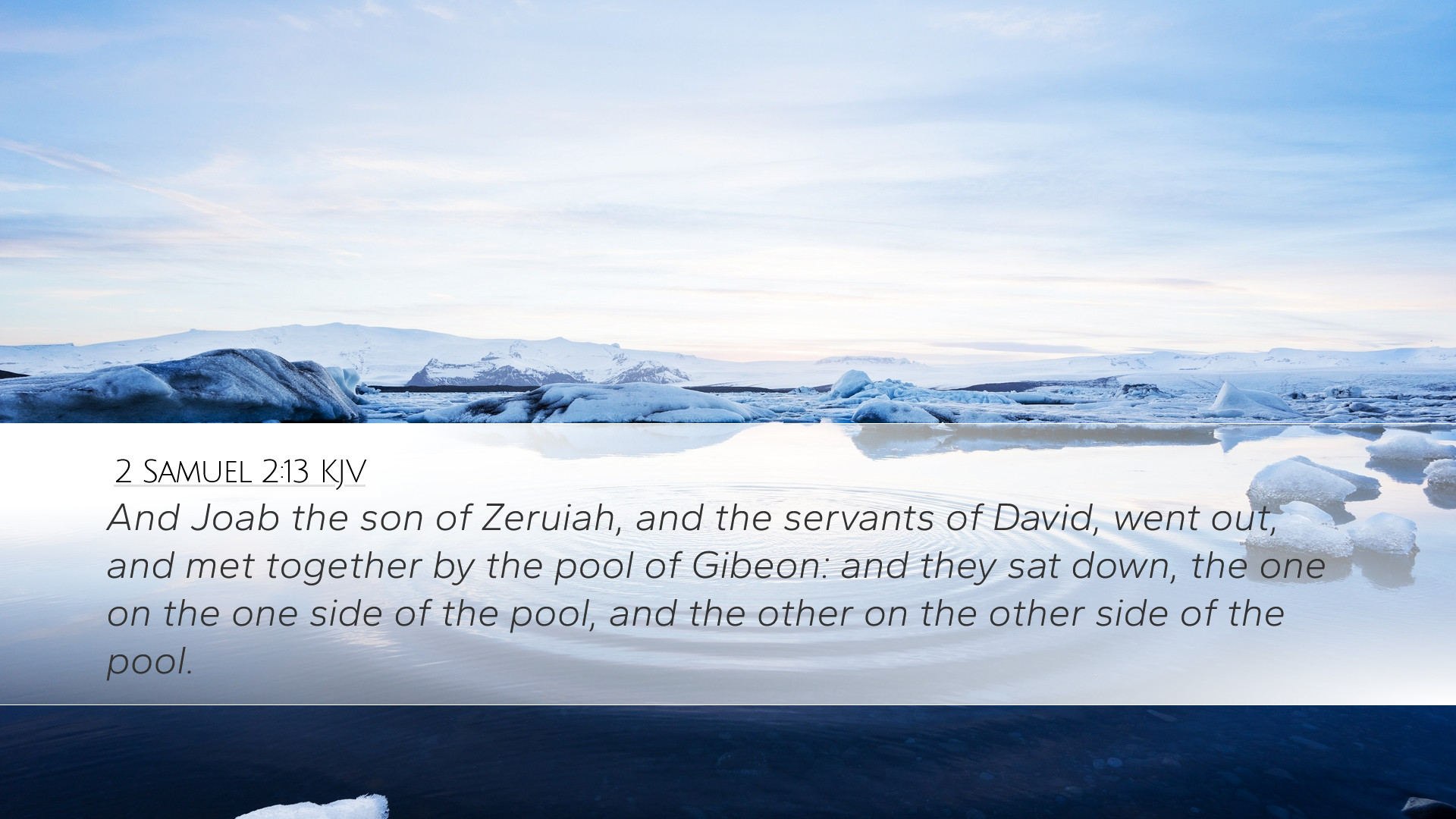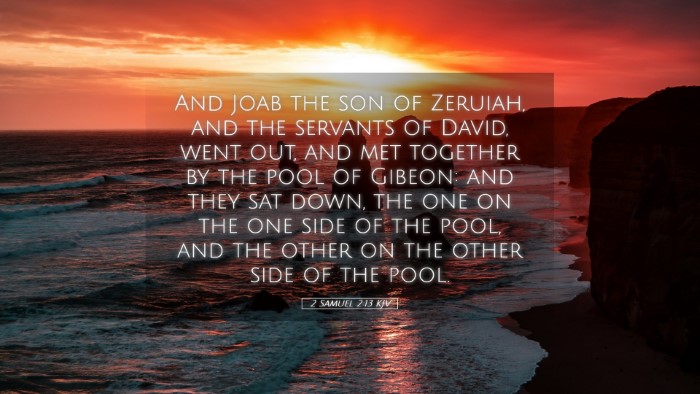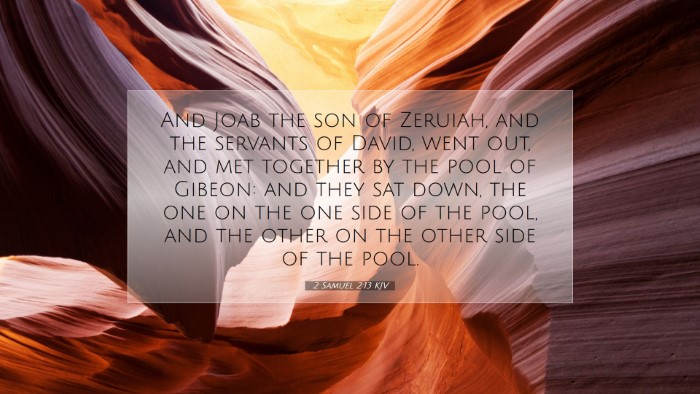Commentary on 2 Samuel 2:13
Verse Reference: 2 Samuel 2:13 (NIV) - "Then Joab, the son of Zeruiah, and David’s men went out and met them at the pool of Gibeon. They sat down, one on one side of the pool and the other on the other side."
Introduction
This verse describes a critical moment in the power struggle following the death of Saul, where Joab, David’s nephew and commander, confronts Abner, the captain of Saul’s forces. The stage is set for a significant conflict that bifurcates the forces of David and Saul’s remaining loyalists. Understanding the dynamics in this passage aids in grasping the themes of leadership, loyalty, and the complexities of Israel's history.
Context and Background
The political landscape of Israel during this period is marred by division; David has already been anointed king over Judah while Ish-bosheth, Saul's son, reigns over Israel. This passage unfolds in the aftermath of Saul's death, delineating the factions that emerge and the contention for the throne. The location, Gibeon, becomes a focal point as a boundary where the two sides confront each other.
Scholarly Insights
Matthew Henry's Commentary
Matthew Henry provides a thorough narrative analysis of the events surrounding this confrontation. He emphasizes the significance of Joab's role and highlights the nature of the conflict:
- Joab's leadership is indicative of his fierce loyalty to David, contrasted with Abner's allegiance to the house of Saul.
- The act of sitting down at the pool symbolizes a pause in the progression of conflict, representing an opportunity for dialogue but foreshadowing inevitable bloodshed.
Albert Barnes' Notes on the Bible
In his commentary, Albert Barnes focuses on the strategic implications of the meeting:
- He notes that the "pool of Gibeon" serves as an arbitrary but crucial location for the assembly of forces. The division of sides could signify an impending clash and reflect the larger themes of civil strife.
- Barnes also draws attention to Joab's character, often portrayed as guileful and ruthless, underscoring the moral complexities in leadership.
Adam Clarke's Commentary
Adam Clarke provides theological reflections and clarifications on the historical significance of this verse:
- He mentions that this event marks a crucial turning point for David's ascendancy as king, albeit amidst violence and division. Clarke explains that this scenario sets the stage for the subsequent conflicts that will ultimately lead to David's complete reign over Israel.
- Clarke also highlights the deeper moral implications of loyalty and ambition evident in both Joab and Abner's positions.
The Significance of the Pool of Gibeon
The "pool of Gibeon" is not merely a geographical marker but serves multiple symbolic roles:
- Place of Encounter: It represents a site of tension between two factions, illustrating the conflict's personal and national dimensions.
- Precursor to Battle: The choice of this location foreshadows the inevitability of violence, while the seated positions of the opposing sides evoke a temporary stillness before the storm of war.
Theological Implications
This passage allows exploration of several theological aspects:
- Human Ambition vs. Divine Sovereignty: The climbing politics and ambition of individuals like Joab and Abner illustrate human nature’s propensity for conflict, yet God's sovereignty allows for the unfolding of His redemptive plan through these tumultuous events.
- Conflict as a Judgment: The civil war and strife can be seen as a direct consequence of Israel's failure to follow God's ordinances, reminding modern readers of the perils of disunity within the body of Christ.
- Leadership Qualities: The character traits exemplified by Joab and Abner reflect the moral quandaries faced by leaders. The frailty of human judgment in the face of loyalty and ambition invites deeper reflection on the qualities essential in contemporary leadership.
Conclusion
2 Samuel 2:13 encapsulates the beginning of a fierce rivalry and the struggle for kingship that marks David's rise. Through the lens of various commentaries, this passage reveals rich insights into the nature of leadership, the complexities of loyalty, and the unfolding of God's purposes amid human conflict. As pastors, students, and scholars engage with these insights, this pivotal moment in the narrative of Israel serves as a reminder of the ongoing consequences of division, ambition, and the importance of aligning with divine wisdom in leadership decisions.


